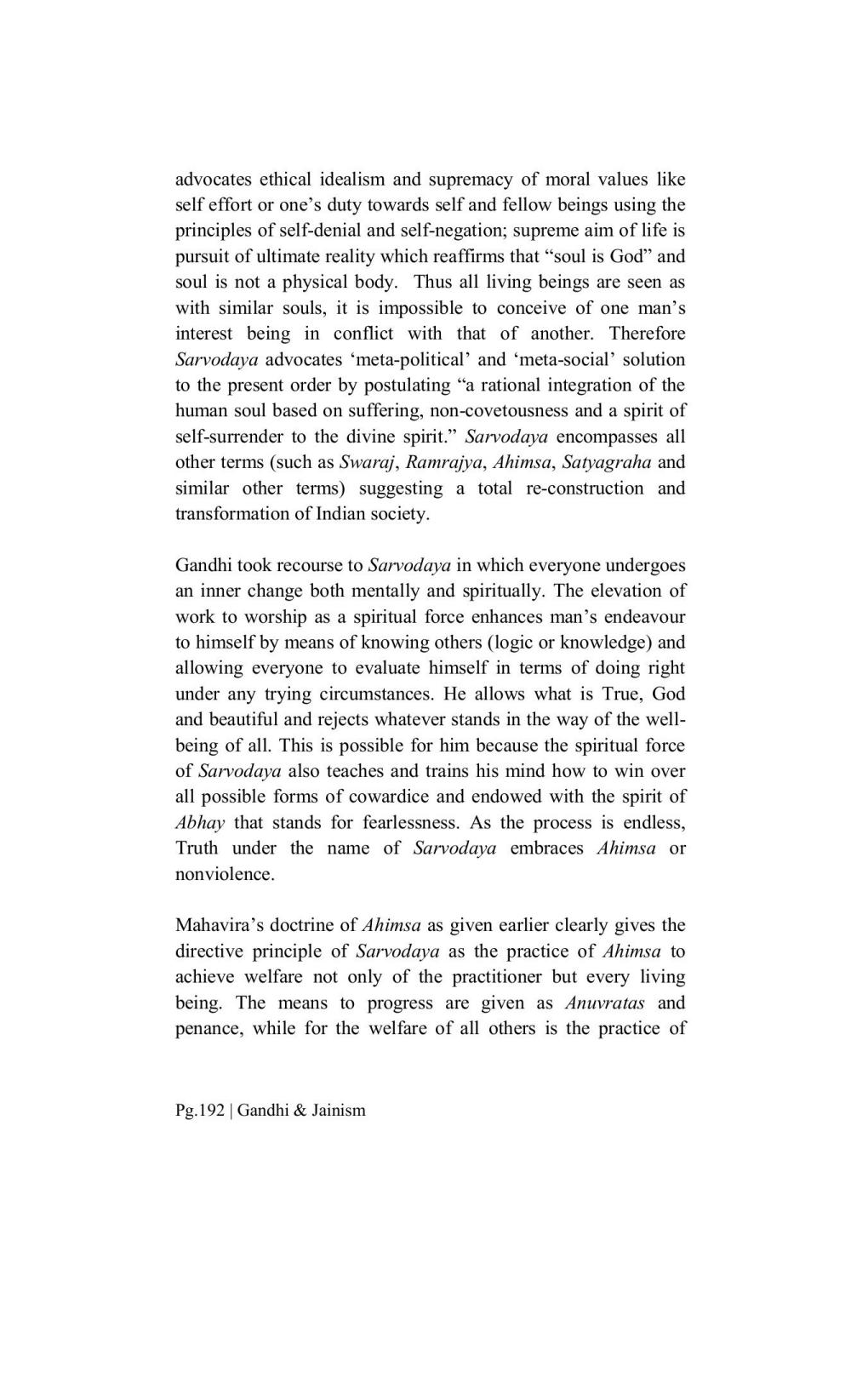________________
advocates ethical idealism and supremacy of moral values like self effort or one's duty towards self and fellow beings using the principles of self-denial and self-negation; supreme aim of life is pursuit of ultimate reality which reaffirms that "soul is God” and soul is not a physical body. Thus all living beings are seen as with similar souls, it is impossible to conceive of one man's interest being in conflict with that of another. Therefore Sarvodaya advocates “meta-political' and 'meta-social' solution to the present order by postulating "a rational integration of the human soul based on suffering, non-covetousness and a spirit of self-surrender to the divine spirit.” Sarvodaya encompasses all other terms (such as Swaraj, Ramrajya, Ahimsa, Satyagraha and similar other terms) suggesting a total re-construction and transformation of Indian society.
Gandhi took recourse to Sarvodaya in which everyone undergoes an inner change both mentally and spiritually. The elevation of work to worship as a spiritual force enhances man's endeavour to himself by means of knowing others (logic or knowledge) and allowing everyone to evaluate himself in terms of doing right under any trying circumstances. He allows what is True, God and beautiful and rejects whatever stands in the way of the wellbeing of all. This is possible for him because the spiritual force of Sarvodaya also teaches and trains his mind how to win over all possible forms of cowardice and endowed with the spirit of Abhay that stands for fearlessness. As the process is endless, Truth under the name of Sarvodaya embraces Ahimsa or nonviolence.
Mahavira's doctrine of Ahimsa as given earlier clearly gives the directive principle of Sarvodaya as the practice of Ahimsa to achieve welfare not only of the practitioner but every living being. The means to progress are given as Anuvratas and penance, while for the welfare of all others is the practice of
Pg.192 | Gandhi & Jainism




